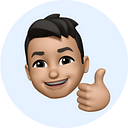Why I’m Learning React in 2019
Unless you’ve been living under a rock for the past 12 months, you’ve probably heard the word “React” thrown around at least once or twice within the web development community.
And for good reason.
Released as an open-source project by Facebook in May 2013, React is a front-end JavaScript library that has seemingly taken the world of web development by storm.
According to the 2018 State of JavaScript report, React is currently the most popular front-end JavaScript framework by far — besting other popular contenders, such as Vue.js, Angular, and Ember.
Nearly 65% of survey respondents said that they have used the framework and would use it again, while another 19% had heard of it and would like to learn.
(Compare that to the mere 29% of respondents who’ve tried the second-most popular framework, Vue.js, and would use it again.)
Count me among that latter 19%.
In my recent post, “My 2019 Creative Goals and Resolutions,” I committed myself to learning the framework in the upcoming year by taking Wes Bos’s React for Beginners course.
Why? Well, for a few reasons …
It’s Popular
I know, I know ... it’s never a good idea to do something just because it’s popular. But I really think there’s something to be said about this.
If you want to land a job as a front-end, or full-stack, developer in 2019, it probably makes sense to learn a little something about the tool that’s been spreading like wildfire across the industry.
In addition, the fact that it’s been picked up by some of the largest companies for their own use should say a little something about the credibility of the framework.
React has had massive penetration (no jokes, please) across the technology world and is now being used by the likes of Instagram, Netflix, PayPal, and Apple — among others.
According to developers who’ve “used it and would use [it] again,” the fact that it’s well-established was the third-most liked aspect of React.
And the framework’s massive popularity also means that there’s a huge community behind it, as well as several top-notch resources for learning it — always a big plus!
It’s Flexible
Unlike Angular, Ember, and the like, React is a JavaScript library — not a framework.
It’s not intended to serve as an all-in-one development solution, and often additional libraries are required to create a full-service application with React.
Some of the most popular tools to use alongside React include libraries like Polymer, data-layer frameworks like Apollo, and back-end frameworks like Meteor and Express.
This means that I won’t be tied into a particular set of opinions while learning React, and I’m free to use and experiment with the library using any tools I’d like.
In addition, developers can further extend React with external UI component libraries designed to mimic (among other things) Google’s Material Design, Bootstrap, and Semantic UI.
It’s Just JavaScript
Okay, it’s JavaScript plus JSX, which (if you’re unfamiliar with it) is an HTML-like JavaScript extension.
It looks a bit funny when written out. Here’s an example from the React docs:
const name = 'Josh Perez';
const element = <h1>Hello, {name}</h1>;ReactDOM.render(
element,
document.getElementById('root')
);
But in the end, it’s all just HTML and JavaScript.
I’m still a fairly new developer, and most of my self-education thus far has been spent learning vanilla JavaScript along with its related libraries and frameworks, e.g. jQuery, nodeJS, and Express.
While I fully intend to learn more and extend my development skills in the near future, I’d much rather “get my feet wet” (so to speak) with something that I’m already familiar with: JavaScript.
JavaScript frameworks seem to be about a dime a dozen these days.
For awhile, I felt really intimidated at the wide array of tools out there to learn — not to mention all of the additional languages.
I mean, once you’ve got a handle on the big three front-end languages, where’s a relatively new developer to turn?
In the paragraphs above, I’ve tried to clue you in on my thought process in choosing React as my first framework and gave some reasons as to why I think it would be a good one to begin with.
Have any of you picked up React yet? Are you planning to? What are some good resources that you recommend?
I look forward to hearing from you all in the comments section.
